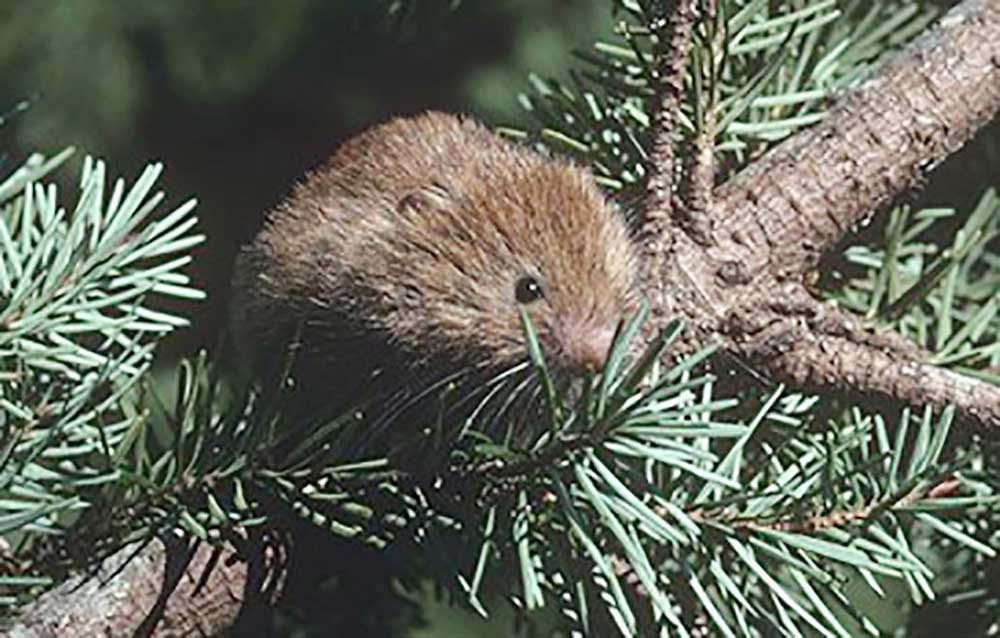Conservation groups plan lawsuit to protect red tree voles
Published 2:00 pm Wednesday, April 15, 2020

- The red tree vole is the focus of a new dispute.
PORTLAND — Three environmental groups announced Tuesday they plan to sue the Trump administration seeking endangered species protections for red tree voles living along the northern Oregon coast.
The Center for Biological Diversity, Cascadia Wildlands and Oregon Wild sent a 60-day notice of intent to sue the U.S. Fish and Wildlife Service and Interior Secretary David Bernhardt after officials denied listing the red tree vole under the Endangered Species Act in December.
Trending
Red tree voles are a small arboreal rodent found in old-growth forests across Western Oregon and northwest California. Groups argue the species is “severely imperiled” by habitat loss and fragmentation along the northern Oregon coast due to logging, wildfires and climate change.
“Oregon’s fragile population of red tree voles could be lost forever to unchecked logging or wiped out in a single fire event,” said Quinn Read, Oregon policy director at the Center for Biological Diversity.
North Oregon coast voles reside in an area that spans the Siuslaw National Forest to the Columbia River, including all or parts of Clatsop, Columbia, Tillamook, Lincoln, Washington, Yamhill, Polk, Benton, Lane, Multnomah and Douglas counties.
Environmentalists initially petitioned the Fish and Wildlife Service in 2007 to list local populations of red tree voles under the ESA. The agency found the species did warrant listing in 2011 — however, it was precluded at the time by higher-priority actions.
Between 2012 and 2016, the Fish and Wildlife Service continued to monitor red tree voles on the northern Oregon coast. Each year, the agency determined the species still warranted protections.
But the Trump administration reversed course in late 2019, re-evaluating the voles’ status and finding it did not meet the definition of a threatened or endangered species.
Trending
“The Trump administration’s about-face on protecting our voles rejects science and ignores the bleak outlook for these rare tree-dwelling mammals,” Read said.
The Oregon Forest and Industries Council, a trade group representing more than 50 private forestland owners and wood products manufacturers, applauded the Fish and Wildlife Service’s decision not to list the red tree vole based on a lack of data about how the species utilizes different types of forests in Oregon.
Seth Barnes, director of forest policy for the council, said they are now partnering with Oregon State University, the National Council for Air and Stream Improvement, Oregon Department of Forestry and the U.S. Forest Service to address data gaps through research.
“We believe the best outcome for the species will come not through costly litigation, but from thoughtful, collaborative research efforts that aim to increase our knowledge and understanding of the species and its habitats,” Barnes said in a statement.
A species assessment by the Fish and Wildlife Service found that North Oregon Coast voles have been substantially reduced or eliminated from most of their range over the last 100 years. The species currently survives in 11 isolated sub-populations, of which two are considered to be highly resilient; four moderately resilient and five less resilient.
Lawson Fite, general counsel for the American Forest Resource Council, a timber industry trade association, said he was not surprised by the latest lawsuit. However, he said the biggest threat to red tree voles comes from wildfires burning up habitat, not from logging and tree thinning projects.
“I don’t think it’s accurate to point the finger at timber management,” Fite said.
What’s more, Fite said timber harvest on federal lands in the North Coast Range are already subject to regulations aimed at protecting voles. Conservation measures identified by the Fish and Wildlife Service include surveying trees for voles, maintaining habitat buffers and designating “high-priority” sites for protections.
The agency also says it is working with federal and state partners on management practices that could help deter the need to list the North Oregon Coast vole population in the future.








